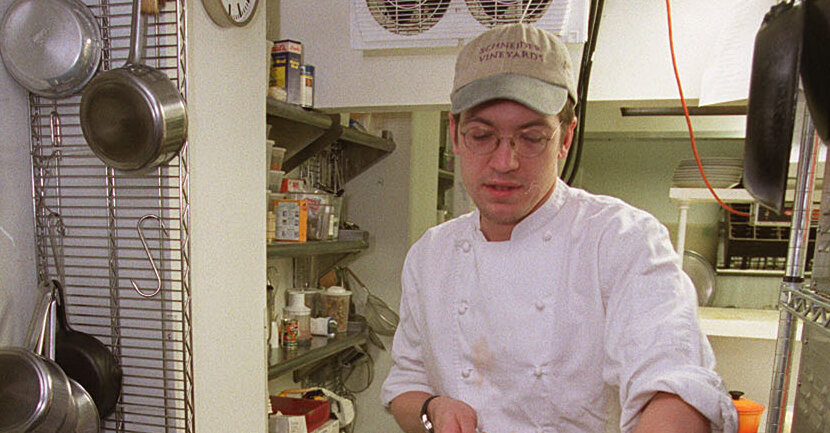
The intimacy of the First Street space, which they transformed into a wine bar, was lost, as was some of the quirkiness. International wines were added to the list. Ms. Alevras largely withdrew from the restaurant as the couple’s second child was born. But the food still drew people to the dining room.
“Many New Yorkers rightly appreciate that no restaurant burrows more joyously into the earth or delves more deeply into the forest than the Tasting Room,” Frank Bruni, then the restaurant critic for The New York Times, wrote in 2006, awarding the restaurant one star.
The larger restaurant proved to be short lived. The 2008 financial crash was devastating, Ms. Alevras said, and they closed the doors to both spots.
When plans for two other restaurants — one that would serve brunch day and night and the other to offer Cuban food — did not pan out, Mr. Alevras left cooking behind, but not his inventive ways. He became the first beverage director at DBGB Kitchen & Bar, Daniel Boulud’s now-closed informal downtown restaurant, which became one of the first places in New York to serve wine on tap from a keg.
He then became beverage director at Má Pêche, David Chang’s Midtown restaurant (also since closed), where he built up the list of wines from the Jura in eastern France just as they were becoming popular. He next moved to the Dutch, Andrew Carmellini’s SoHo restaurant, where he was service manager.
How did he feel, no longer in charge of his own restaurant?
“We have a family to support, so I was happy to accept the reduction in ego in exchange for stability,” Mr. Alevras said in 2009.
By 2013 he had abandoned restaurants entirely and started working at Red Hook Winery in Brooklyn, where the founder, Mark Snyder, was a friend. Without a title, Mr. Alevras carved out a role for himself and never left.




